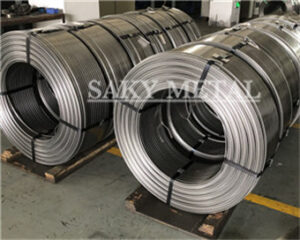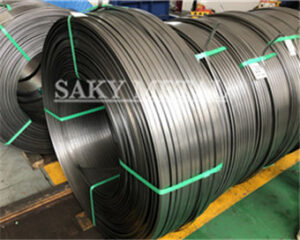Call us now:
What are the advantages of Flat Wire over traditional round wires?
Flat wire refers to a type of wire that has a flattened or rectangular cross-sectional shape, as opposed to the traditional round or cylindrical shape of regular wire. It is typically manufactured by taking a round wire and subjecting it to a rolling or flattening process to achieve the desired shape.
Flat wire offers several advantages over round wire in certain applications. Its flattened shape provides benefits such as improved surface contact, increased surface area, and enhanced electrical conductivity. These properties make flat wire well-suited for various specialized applications where space constraints, electrical performance, or mechanical considerations are important factors.
Flat wire finds applications in a wide range of industries, including electronics, telecommunications, automotive, aerospace, medical devices, and more. It is commonly used in applications such as connectors, springs, electrical contacts, transformers, inductors, antennas, heating elements, and sensor elements.
The manufacturing materials for flat wire can vary depending on the intended application. Common materials include copper, aluminum, stainless steel, and various alloys. The choice of material is influenced by factors such as conductivity, corrosion resistance, strength, and other specific requirements.
Overall, flat wire offers unique characteristics and advantages that make it a preferred choice in certain applications where its specific shape and properties can contribute to improved performance and functionality.


